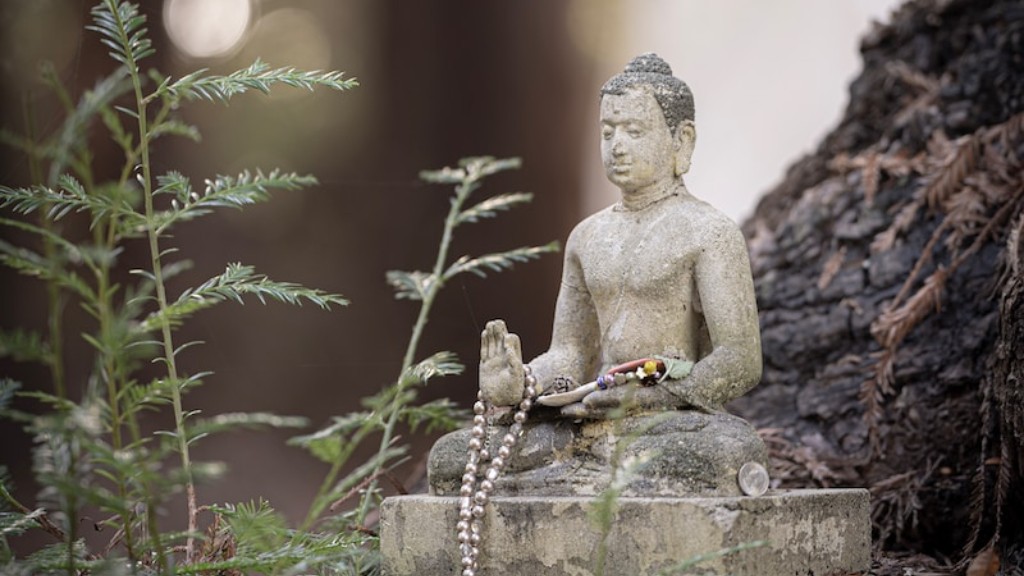Origins
Hinduism is an ancient religion with a long history that spans more than four millennia. It is believed to have its origins in the Indus Valley civilization and is usually thought to have emerged around 1500 BCE. It is the world’s third-largest religion and it is widely followed in India, Nepal, Sri Lanka, Mauritius, Bali, Indonesia, and Bangladesh. Buddhism, on the other hand, is a major world religion that was founded by the historical Buddha, Siddhartha Gautama, in the fifth century BCE. It is mostly associated with the countries of Southeast Asia, but is practiced around the world in various forms.
Core beliefs
The core beliefs of Hinduism are complex and varied but the most important belief is Vaisnavism, which teaches the existence of one supreme being. This supreme being is referred to as Brahman, who is believed to be the creator of the universe and the source of all knowledge and wisdom. Other beliefs associated with Hinduism include the concepts of karma and reincarnation, the belief in multiple gods and goddesses, and the belief in the cycle of birth and death. Buddhism, in contrast, focuses on the teachings of the historical Buddha, who is believed to have attained enlightenment and the cessation of suffering. Its core beliefs center around the four noble truths and the eightfold path. These core beliefs emphasize the importance of right thought and right action as paths to liberation and enlightenment.
Practices and Rituals
Hinduism has many religious practices and rituals that are practiced by followers. These include daily prayer and meditation, offerings of food and flowers to deities and ancestors, and pilgrimage to holy sites. Additionally, the practice of yoga is often associated with Hinduism, and is used as a means of spiritual and physical development. Buddhist practices are very similar. They include daily meditation, offerings to the Buddha and other deities, and pilgrimage to sacred sites. Additionally, many Buddhists practice meditation as a way to cultivate mindfulness and inner peace.
Scripture and Teachings
Hinduism has no single scripture, but it is based primarily on the Vedas, Upanishads, and other Hindu scriptures, which contain the teachings of the ancient sages. These scriptures are organized in four categories: Shruti, Smriti, Purana, and Agama. Buddhism has a core scriptural collection, known as the Tripitaka, which contains the teachings of the historical Buddha. This collection, which is divided into three parts, contains doxologies and other teachings on how to live a moral and ethical life, and how to reach liberation.
Cultural Practices
Hinduism has many cultural practices that are essential to its practice. These include caste distinctions and the practice of arranged marriage. Additionally, there is a great emphasis on the importance of food in Hinduism, with a variety of vegetarian dishes often served at religious ceremonies. In contrast, Buddhism does not have strong cultural practices associated with the religion, though certain cultural ceremonies are incorporated into certain sects of Buddhism.
Role of Women
Hinduism traditionally has a very hierarchical view of gender, which includes a strong patriarchal structure and a rigid notion of what a “proper” Hindu woman should be. While this view of women is slowly changing as more women become involved in positions of authority within the Hindu community, there is still a long way to go. Buddhism, however, has a more egalitarian view of gender and has been more progressive in its treatment of women. The historical Buddha was one of the first teachers to allow women to practice his teachings and Buddhism has since evolved to become more inclusive in its view of gender.
The Caste System
In Hinduism, the caste system plays a large role in how people are viewed and treated within the community. Depending on the caste, different people have access to different levels of social and economic opportunity, and societal norms exist that reinforce these distinctions. Buddhism, however, is largely a caste-less religion, and does not discriminate based on social status or economic background.
Metaphysical View
Hinduism has a very complex metaphysical view of the world, which includes the belief in a vast cosmology of gods, goddesses, demons and other spiritual beings. These entities are believed to exist alongside humans and can have an immense impact on their lives. Buddhism does not have such a complex vision of the metaphysical realm and is more focused on the teachings of the historical Buddha and the attainment of nirvana.
Conclusion of Life
Hinduism has a complex view of the afterlife, which includes the belief in reincarnation and the transmigration of souls. In contrast, Buddhism has a simpler view of the afterlife, which centers around the attainment of nirvana.

